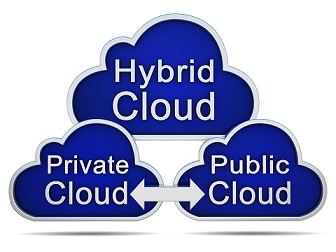 Security experts far and wide cry loudly any time there is a suggestion about using cloud services for anything but the most routine of tasks. Hacking is a concern about which many are rightfully concerned.
Security experts far and wide cry loudly any time there is a suggestion about using cloud services for anything but the most routine of tasks. Hacking is a concern about which many are rightfully concerned.
Yet neither can anyone deny how convenient the cloud is, and how it can increase productivity. That is why a compromise — the hybrid cloud — is continuing to make inroads in the enterprise.
The Hybrid Cloud: What is It?
The hybrid cloud is much more than spinning up a server with a connection to Amazon Web Services and calling it hybrid. The hybrid cloud allows both public and private clouds to remain separate from each other.
From a security standpoint that means what is yours, stays yours. You are in full control of your hardware and your security. This means that there must be some sort of cloud services running internally.
The two cloud networks, while remaining completely separate, communicate via encrypted connections. These connections allow users to transport data from one side to the other. An end user can use completely private applications and data while using a public cloud service like Google Cloud or Amazon Web Services.
Advantages of the Hybrid
The hybrid cloud allows you to have an on-site computing infrastructure, supporting the needs of your users and their workload. This also means at times of high traffic, failover to public cloud services can balance the demand of the users between both public and private clouds. Instead of having to over spec your servers for that once-a-month report that eats up your resources, you can just pay your cloud provider for the ability to grab that power as you need it.
Additionally, you are not stuck with the bottlenecks that go along with public internet providers. Web services offer you direct access to your private cloud, allowing you to avoid the slowdowns which go along with public internet providers.
At the same time, a hybrid solution allows you to keep core business software and data on premise, bypassing issues with sensitive data, security or compliance.
Too Much Investment
Along with the advantages of the hybrid cloud, a big thing to keep in mind is that there is already a lot invested in your infrastructure. The mere suggestion that all of that investment should be scrapped in favor of going for a full Google or Amazon implementation is enough to give a CIO nightmares for weeks.
The fact is, there is too much infrastructure to dump. The hybrid cloud allows you to leverage what you have with cloud services that fit your needs.
Knowing just what the right mix of public and private is going to be might be tricky. The cloud is not going away. The more convenient the cloud is made, the more demands there are going to be from your application’s end users to employ it. The hybrid cloud is a way to get the best of both worlds.

